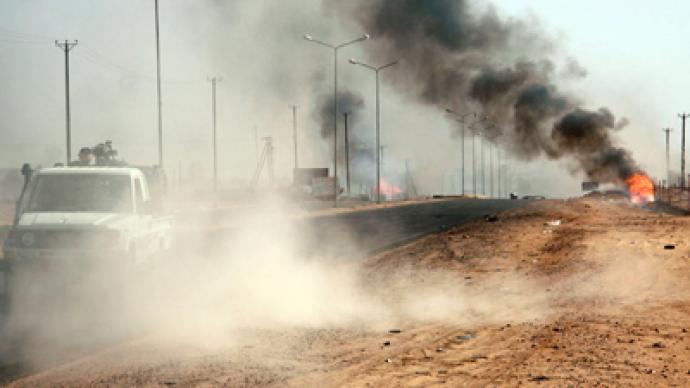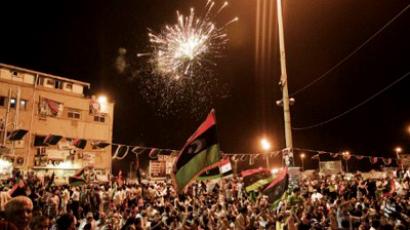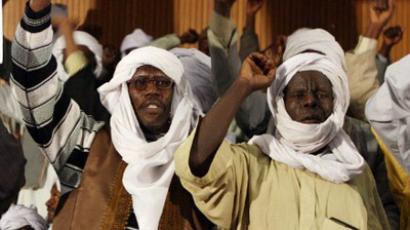150 dead in Libyan tribal clashes reveal vacuum in authority

Libya's interim government says a ceasefire has been reached in a six-day conflict between two tribes that has claimed some 150 lives in the southern city of Sabha. However, the violence exposes the government's tenuous grasp in the country.
Premier Minister Abdel Rahim al-Kib told reporters in the capital Tripoli that "calm now prevails in Sabha." Previous ceasefires had been announced throughout the week, but collapsed within hours each time, as deep-seated local tensions erupted into violence.The conflict in Sabha is between the indigenous Arabic population and the Tubu, a tribe that stretches through Niger, Chad and Libya itself, though its members are regarded as outsiders by many in the city.Residents of the oasis say that the rivalry burst into open conflict Monday after a Tubu shot a member of the Arab Abu Seif tribe. Further aggravating the conflict, a delegation of Tubu elders and armed men heading to reconciliation talks were ambushed. The violence escalated as more and more families were dragged into a deadly blood feud that killed almost 150 people. In addition to the dead, more than four hundred have been injured, overwhelming local hospitals.Sabha residents say the two groups exchanged fire with automatic rifles, mortars, and rockets. Tubu tribal spokesman Mohammed Lino said some 70 Tubu homes were torched and 100 families were forced to flee the city during the past week of violence. Some families from Sabha said they fled the city by foot as bullets whizzed by, sometimes striking women and children. Libya's Tubu have kinsmen living across the border in Chad, and the defense ministry said Saturday that it sent a number of militiamen and national army soldiers to the country's southern border in case other African tribes tried to join the fight. Other militiamen as well as tribal chiefs from around Libya were dispatched to Sabha over the past few days. On Thursday, a cease-fire was reportedly brokered that residents say has held in the city, though not outside.
Libya disintegrating
Although Libya’s National Transitional Council nominally controls all of the country, in practice it has struggled to integrate the disparate tribal militias who fought Gaddafi into a single national force. As a result, large parts of Libya have disintegrated into separate fiefdoms.The clashes in the oasis region some 650 kilometers south of Tripoli show the fragile authority of the Libyan government, particularly in the isolated settlements that dot the southern desert. With only a nascent national army and police force, Libya's ruling National Transitional Council relies on militias comprised of former rebels to keep the peace. However, the country's vast distances make it difficult to deploy them to trouble spots.The Council has already been accused of passivity, but no-one knows for sure if it actually has the manpower to resolve a conflict in a city that far away from the capital. The Sabha conflict is not the first major outbreak of violence. Clashes in Al Kufra, also involving the Tubu, killed more than a hundred people last month.














